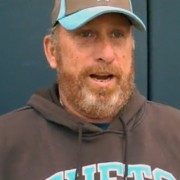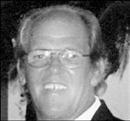We Could Have Survived
It was Thursday night, and in New York, Marvin Miller and Ray Grebey were going to the mat once more in what seemed to be a hopeless effort to settle the baseball dispute. But at Town Field on Dorchester avenue in Boston, nobody gave a damn about Miller or Grebey or, for that matter, major league baseball.
This doesn’t mean a whole raft of folks cared much about what was going on at Town Field either, where the Craven Club was playing the Boston Typos in a Park League game.
There were 44 people in the stands when the game began, with perhaps another two dozen clustered around the backstop, where they could watch the pitcher’s breaking stuff, if he had any.
“I can remember games here,” said Dick Holmquist, manager of The Craven Club, “when there were so many fans we had to rope off the crowd. That was a long time ago, of course.”
Town Field has an all-dirt infield, a pretty good outfield, and a set of double banked lights that can best be described as satisfying the minimum requirements.
“If you play in this league,” said Paul Gutowski of the Typos, “you play for pride and fun, not money. Who cares about what the major leaguers are arguing about? They just rip people off, ruin the summer for everybody. Money. When the argument’s about money, nobody wins.”
Phil Moses of Roslindale said he felt the major leagers were fighting for a principle, and he approved of that.
Moses was on the Typo bench, not playing, he said, because “I screwed up the last game. Made a couple of errors in the last inning.”
John Connolly, who played in the Park League in 1937, called Town Field the best in the league.
“You ought to do a story on some of the other fields,” he said. “Fallon Field, South Boston Stadium. Write about the broken bottles, all the vandalism.”
Jack Quinn, who lives three houses over the right field fence, has been following the Park League for 12 seasons.
“You want to see something disgusting?” he said. “C’mere, let me show you the toilets here. Nice, huh?”
About the third inning of the game, as daylight faded and the baseball turned gray, fly balls became an adventure.
Right fielders have an additional problem. Lights from cars coming up a side street shine directly into right. Sun fields in major league parks are child’s play compared to the glare from a truck approaching Town Field.
Three nights a week, Herb DeGraffe drives 54 miles one way from Portsmouth, N.H., to play second base for the Craven Club. He’s a UConn graduate who’s had tryouts with the Yankees and Pirates and last season had dreams he’d someday be a major leaguer.
“I got a different attitude this year,” he said. “I’m down here to have fun, and if I get noticed, okay.”
Avi Nelson, the political commentator and sometime candidate, is the Craven Club’s designated hitter. Nelson first played in the Park League in 1962.
“I talked to a kid on our team last year,” Nelson said, “who was born the first season I played in the league. That’s a little depressing.”
But Nelson sticks around, even though other commitments make it tougher and tougher for him to get to games. He knows that when he quits, a large chapter of his life will have ended.
The Typos, last season’s champs under the name Supreme Saints, scored three runs in the first, but the Cravens matched that in the bottom half.
Base hits rang off the aluminum bats with the strange pinging sound that middle-aged people, who grew up with scarred, splintered and taped wooden Louisville Sluggers, will never get used to.
By 9:30, the gathering had diminished. Only 12 diehards remained in the stands, and perhaps as many more around the cage.
The Craven Club, ahead by two, scored two more in the bottom of the sixth. Nelson had contributed a clutch single, and then left to attend a meeting in Arlington.
The lead wasn’t enough. The Typos came up with a big rally in the top of the seventh. Jim Laneau, the Typos’ rookie manager, used so many players he had to pull a Don Zimmer and ask his bench: “Anybody here know how to play shortstop?”
The Typos won the game, 14-11, according to the small, hand- chalked scoreboard affixed to the cage behind home plate.
Laneau said his team would be better when five players from Brandeis joined the club.
Moses, who had come off the bench to strike a bases-loaded single in the big rally, was asked what would happen to him when the collegians arrived.
He smiled.
“I’d say it’s goodby, Phil,” he said.
Early the next morning, in New York, Miller and Grebey effected a dramatic settlement of the baseball dispute. The next day the papers and television were filled with stories about how fans the country over were breathing sighs of relief that their favorite players would continue to draw six-figure salaries instead of unemployment checks.
The Craven-Typo result was on the scoreboard page, in agate type, but of course there was no mention of Moses’ clutch single, or the home-plate collision between Bobby Cunningham and Terry O’Malley, or Joe Glynn’s 400-foot smash off the top of the centerfield fence or any of the plays we’d have made a big deal of if they’d occurred at Fenway Park.
The professionals are the big time and the Parks League is small time, and that’s the way it is.
So why does the thought persist, after a night of watching men play baseball for fun, that somehow we might have been able to survive a summer without baseball for profit?
Copyright © 1980 Boston Globe, all rights reserved. Written by Ray Fitzgerald.




Leave a Reply
Want to join the discussion?Feel free to contribute!